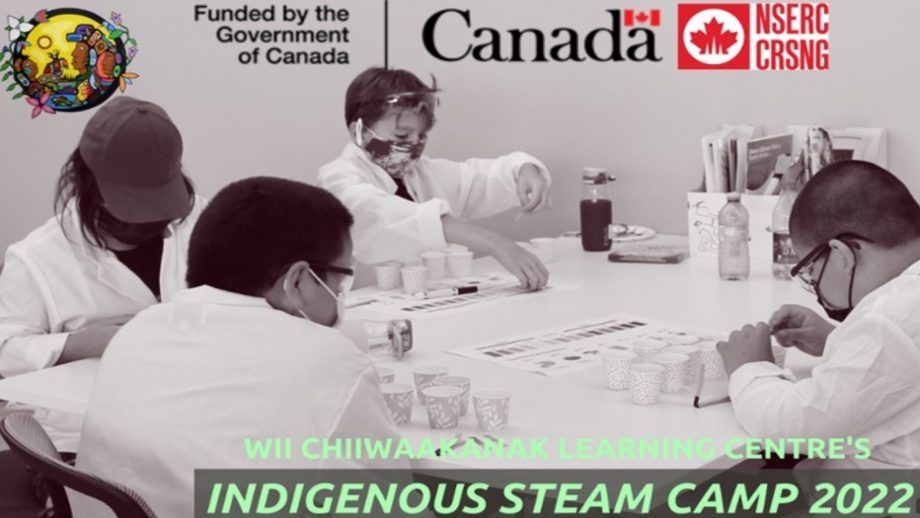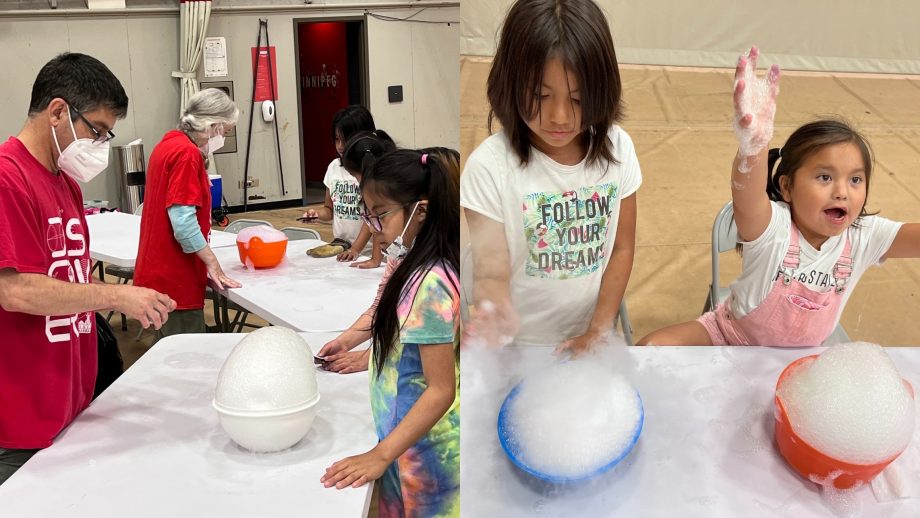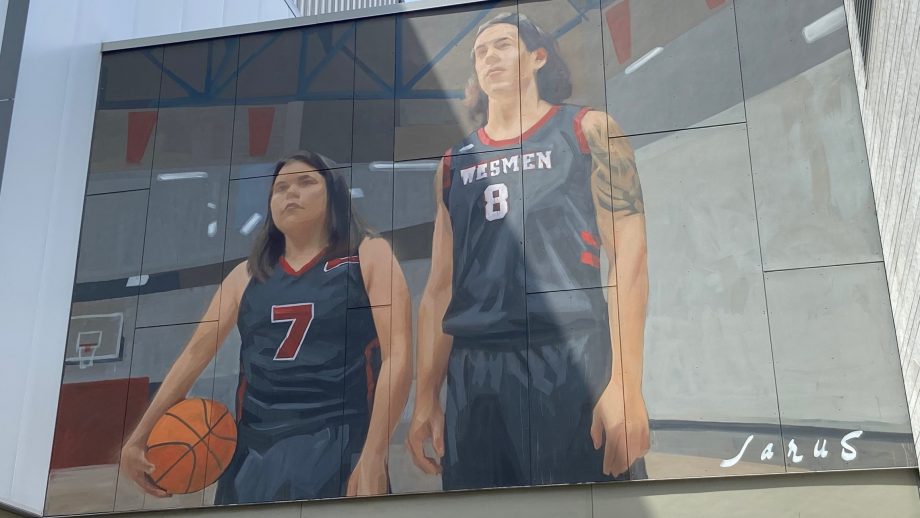My time here has shown me that my culture is not gone, my language is not gone, and that there are people who are working really hard to make sure we can preserve it.
Sharissa Neault
Growing up, Sharissa Neault thought she had lost her language and culture.
Now, as a University of Winnipeg psychology student, she’s working with theManitoba Indigenous Cultural Education Centre (MICEC)to share Cree (Ininímowin) with others onTikTok.
“响应been really positive and it’s definitely surpassed all expectations,” said Neault, who’s from Fox Lake Cree Nation. “We have had so many young people commenting, saying ‘This is the first time I’ve heard my language.’”
It wasn’t until she arrived four years ago at the MICEC as a summer student that Neault realized her language and culture weren’t gone.
“I saw my coworkers working tirelessly to create resources to preserve the language,” she said. “My time here has shown me that my culture is not gone, my language is not gone, and that there are people who are working really hard to make sure we can preserve it.”
As the online learning coordinator with the MICEC, Neault is currently organizing virtual speaker presentations to share Indigenous knowledge.
However, it was during the first wave of pandemic last spring when Neault decided to give TikTok a shot. While in isolation, she was inspired to pursue the idea by her siblings.
“My younger brothers kind of introduced me to TikTok and I thought it was great,” she recalled. “It’s so accessible to young people, so I love that. It’s a way to reach out to the public while isolating.”
The MICEC TikTok account was created last April and now has more than 3,300 followers, 30,600 likes, and the most popular video has 40,000-plus views.
Neault is often joined on the videos by colleague and fellow student Noah Malazdrewicz, who shares the Ojibwe words he’s learning.
“Young people are seeing it and saying “Thank you, I heard my granny say this as a kid,’ ‘I haven’t heard my language in years, thank you,’ or ‘I didn’t know I could still learn my language,’” Neault said. “The comments make it worth it.”
Leading .caISES
During the past academic year, Neault has also served as the President for theUWinnipeg chapter of the Canadian Region of AISES (.caISES).
The adjustment from travelling to and from different conferences and hosting in-person activities was challenging, but the chapter was able to keep members actively involved through virtual gatherings, and workshops.
For Neault personally, her biggest takeaway being a member and then President of .caISES was learning that there are lots of Indigenous people in academia.
“When I first joined .caISES, I thought there were no Indigenous people in my field because I hadn’t met anyone,” she recalled. “I only knew one other person studying psychology and it was clinical psychology, which is not where I’m going.”
It was during the AISES 2020 Leadership Summit in Temecula, California, the traditional territory of the Payómkawichum people, when everything changed for Neault.
Attending a conference with hundreds of Indigenous professionals in STEM alone was “eye-opening and inspiring,” she explained, adding that she met multiple people in her field and related fields.
“The Pechanga tribe (of the Payómkawichum people) allowed us to visit their sacred site, Wi’áaşal (the Great Oak), and it was there that I met an Indigenous psychologist for the first time,” Neault said. “This psychologist was from New York, and all the way from New York he continues to be a professional and cultural mentor.”
Going Forward
Looking ahead, Neault’s priority right now is to live by her teachings, including tápahténimowin (humility).
While she always thought she would pursue a master’s degree right after her undergraduate studies and then a PhD, things have changed for her.
“In reconnecting to my culture and supporting a group of incredible Indigenous scientists who are reconnecting to their own cultures within academia, I have learned that I may have a different dream,” Neault said. “I hope to be a learner for a very long time, and I’m unsure if I want that learning to happen on the land, in an institution, or both just yet, but I’m excited to find out.”





